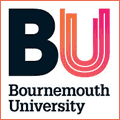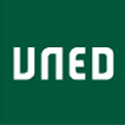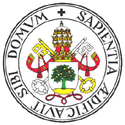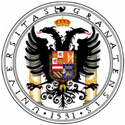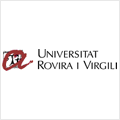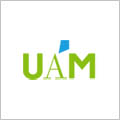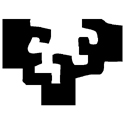Bachelor in Anthropology - Grado en Antropología
-
Imparte:
-
Modalidad:Presencial
-
Precio:Unlimited number of Scholarships available for next academic year
UK/ROI/Channel Islands: £9,535 per year
International: £19,635 per year -
Comienzo:Septiembre 2026
-
Lugar:Bournemouth
Reino Unido -
Duración:3 Años
-
Titulación:BSc (Hons) Anthropology
This degree - one of just a handful at UK universities to offer complementary units covering social anthropology alongside the core focus on biological anthropology – provides a firm foundation for understanding how societies work.
This course requires 104–120 UCAS tariff points including a minimum of 2 A-levels or equivalent. We are happy to consider a combination of qualifications and grades to meet the overall tariff, for example A-levels A*CC, ABC, BBB or BCC, BTECs DDM or DMM. You can use the UCAS calculator to see how your qualifications equate to UCAS tariff points.
If English is not your first language you´ll need IELTS (Academic) 6.0 with a minimum of 6.0 in either reading or writing and 5.5 in all other components, or equivalent.
Anthropology is the study of humans: what unites us as a species, and how and why individuals and groups vary both biologically and culturally across space and time
With comprehensive study of the dual biological/social nature of humans and human societies, past and present - gain an understanding of human biological and cultural diversity
Undertake hands-on practical and laboratory work, all delivered by leading academics
Anthropological theory and fieldwork, cultural ecology, human-environment interaction, human evolution, and material culture and technology are all key areas of study
Select subject options from biological and social anthropology and allied disciplines, to build your study around your own interests, passions, and career aspirations
Complete a five-week or optional 30-week placement to apply skills developed as well as build a network of professional contacts and a strong CV, enhancing your career prospects. Within 15 months of graduating, 80% of our students are in employment or further study
YEAR 1
Introduction to Archaeology and Anthropology
Responsible Research in Archaeology & Anthropology
The Human Past
Material Worlds
Introduction to Social Anthropology
Option Units (Choose One)
Debates in Archaeology and Anthropology
Open Curriculum Elective
YEAR 2
Principles of Biological Anthropology
Research Skills
OPTION UNITS
Artefact Studies
Contemporary Theory in Archaeology and Anthropology
Environmental Archaeology
Working with Cultural Heritage
Open Curriculum Elective
Becoming Human
Environmental & Societal Challenges
Understanding Cultures
Growing up & Growing old
OPTIONAL PLACEMENT YEAR
You may choose to complete an optional 30-week minimum work placement which can be carried out anywhere in the world. The placement year offers a chance to gain experience and make contacts for the future. Alternatively you can complete a short 5 week placement and complete your course in three years.
FINAL YEAR
Independent Research Project (A&)
OPTION UNITS (CHOOSE FOUR):
Between Heaven and Earth
Digital Approaches to Archaeology & Anthropology
Fields of Conflict: Violence and warfare in the human past
People and Nature in Amazonia
People, Production and Place
OPEN CURRICULUM ELECTIVE: CHOOSE A UNIT FROM ANOTHER PROGRAMME UNDER THE OPEN CURRICULUM.
Anthropology of International Intervention
Seekers, Believers & Iconoclasts - Sociology of Thought
Animals & Society
Food, Culture & Travel
Primate Behavioural Ecology
Our graduates go on to a large variety of roles, using their transferrable skills in positions and areas listed below:
Archaeologist
Commercial Heritage, museums, conservation trusts and tourism
Data management and analysis
Education, higher education, research and academia
Historical preservation
Commercial archaeology excavation and consultancy
Local government services, charities, social research and policy, health and social work, development,
Law, law enforcement, forensic science, scene of crime and police forces
Overseas agencies and international organisations
